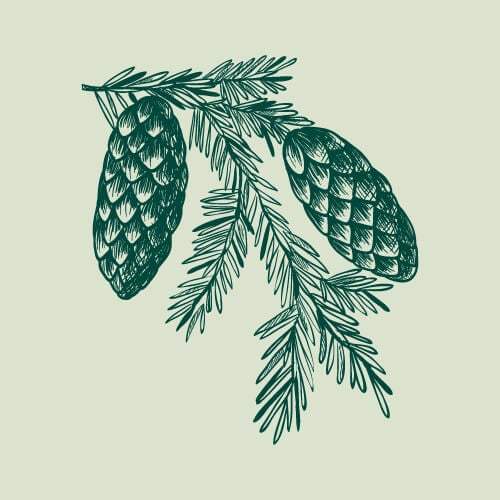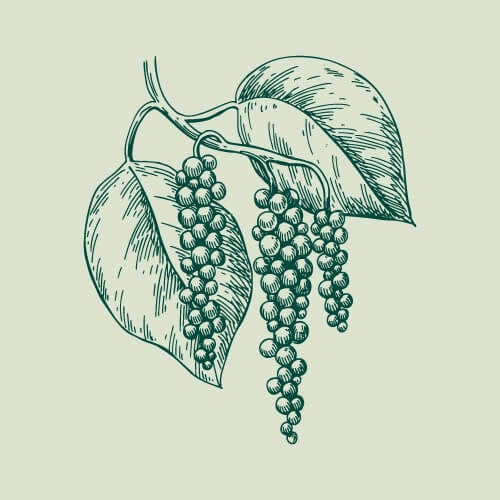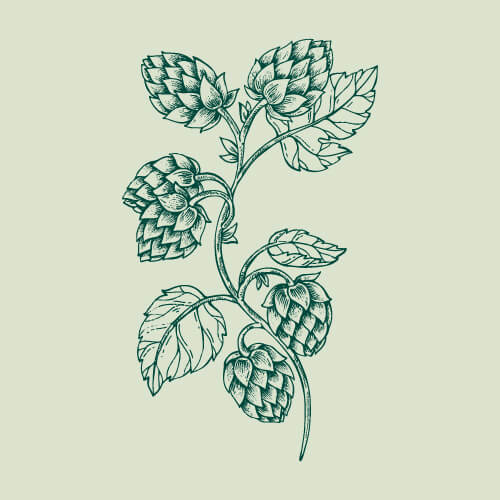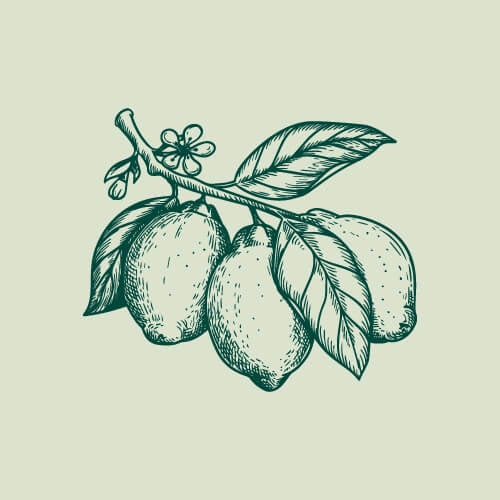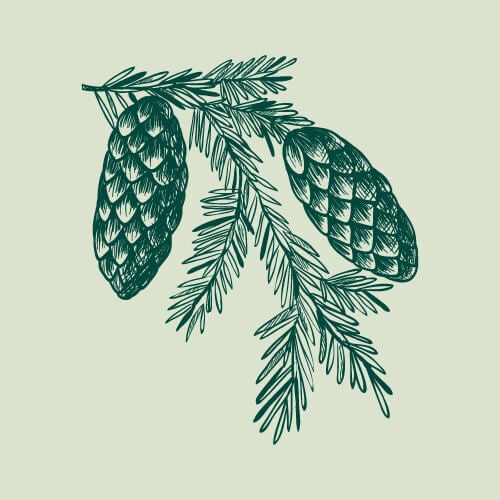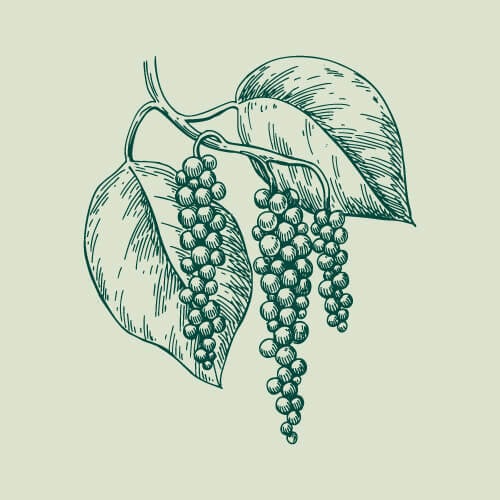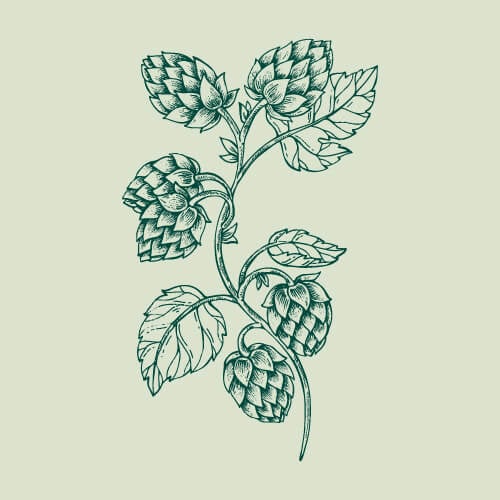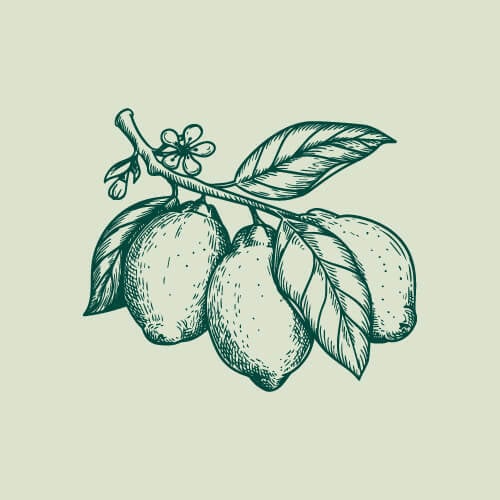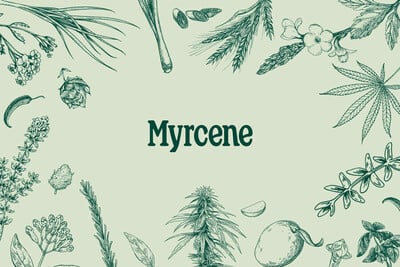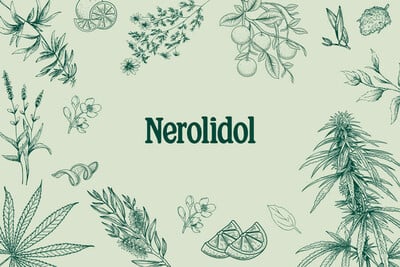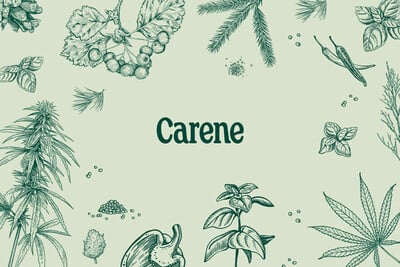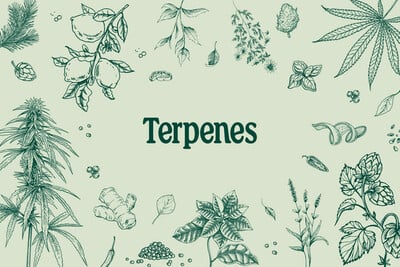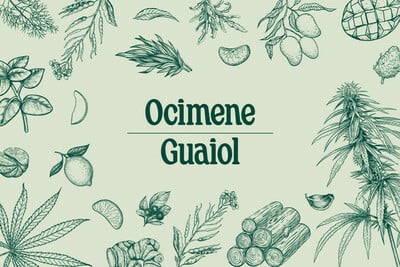.

Pinene: A Refreshing Forest Terpene Found in Cannabis
As one of some 30,000 terpenes found throughout nature, pinene occurs in pine trees, several culinary herbs, and cannabis. Known for its spicy, sweet, and earthy aromas, pinene also teams up with THC to dictate the effects of certain cannabis strains. Discover everything you need to know about this molecule as we cover the latest research.
Contents:
Even if you’ve never heard of this terpene before, you’ve certainly smelled it! Every time you take a stroll in a conifer forest, you have pinene to thank (in part) for the pleasant aroma in the air. Pinene also occurs as one of the most dominant terpenes in cannabis flowers. Continue reading to learn more about its chemistry, effects, and the latest research surrounding this promising molecule.

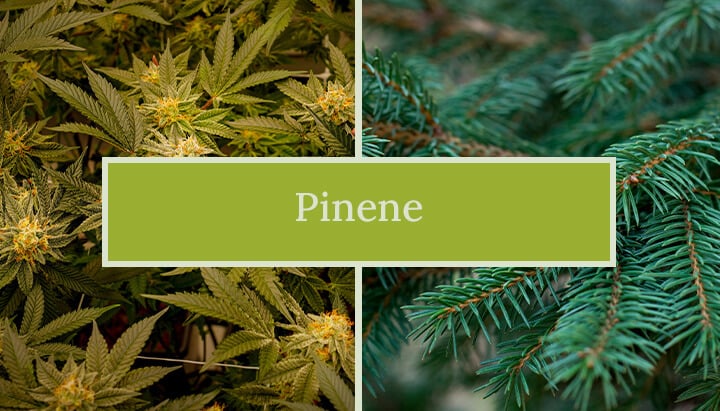
Introducing Pinene: A Refreshing Forest Terpene
Pinene is one of around 30,000 terpenes that exist in nature, and one of around 150 found in cannabis flowers. These compounds aren’t directly involved in plant growth and reproduction. Rather, they act as chemical shields against pests, diseases, and environmental stress. In the case of cannabis, they’re made in the resin-producing trichome glands alongside cannabinoids such as THC and CBD.
As a monoterpene, pinene is a small and volatile compound made up of just two isoprene units—the building blocks of terpenes. Pinene exists as two different isomers: alpha-pinene and beta-pinene. These molecules don’t only show up in cannabis plants; pine trees, rosemary, dill, basil, eucalyptus, and sage all manufacture pinene. As mentioned, pinene is responsible for the signature scent you experience every time you step foot in a pine forest.
Pinene, Forest Bathing, and Cannabis
Forest bathing, known in Japan as the practice of shinrin-yoku, involves spending time in wooded environments. Research ties the practice to a wealth of health benefits[1], including improved sleep, mood, and immune function. Many factors underpin the benefits of forest bathing, including airborne terpenes such as pinene. Walking in a pine forest essentially serves as a form of aromatherapy that can lift our spirits and alter our physiology. We also inhale pinene while smoking or vaping an assortment of cannabis strains—another means of experiencing the effects of this terpene.
A Synergistic Cannabimimetic Terpene
The constituents in cannabis don’t work in isolation. Rather, they act in concert via the entourage effect. Recently, scientists have found that some cannabis terpenes, including pinene, target receptors of the endocannabinoid system. Through this cannabimimetic action (that which mimics the effects of cannabis), pinene is able to activate[2] the CB1 receptor—the same site that underpins the psychoactive effects of THC. While researchers are still trying to figure out the significance of this finding, it suggests that pinene could work synergistically with other cannabis compounds, such as THC and CBD, and could thereby influence the effects of each strain.
The Aroma and Flavor of Pinene
Both pinene isomers offer distinct yet similar aromas and flavors. Alpha-pinene has more of an earthy and sweet aroma, not dissimilar to that of pine needles and the general environment of a conifer-rich forest. When it comes to taste, alpha-pinene offers flavors of sweetness paired with rich notes of rosemary. What about beta-pinene? Well, this isomer serves up sharper aromas and flavors of wood and spice, along with hints of dill, pepper, and basil.
Effects Associated With Pinene in Cannabis
The presence of a-pinene and/or b-pinene influences the effects of certain cannabis cultivars. Users often describe the effects of strains containing high concentrations of pinene as clear, lucid, and crisp. As such, pinene-rich strains generally aren’t associated with the strong memory impairment credited to many other varieties. The cerebral effects of high-pinene varieties make such strains ideal for use during the day or when looking to maintain productivity.
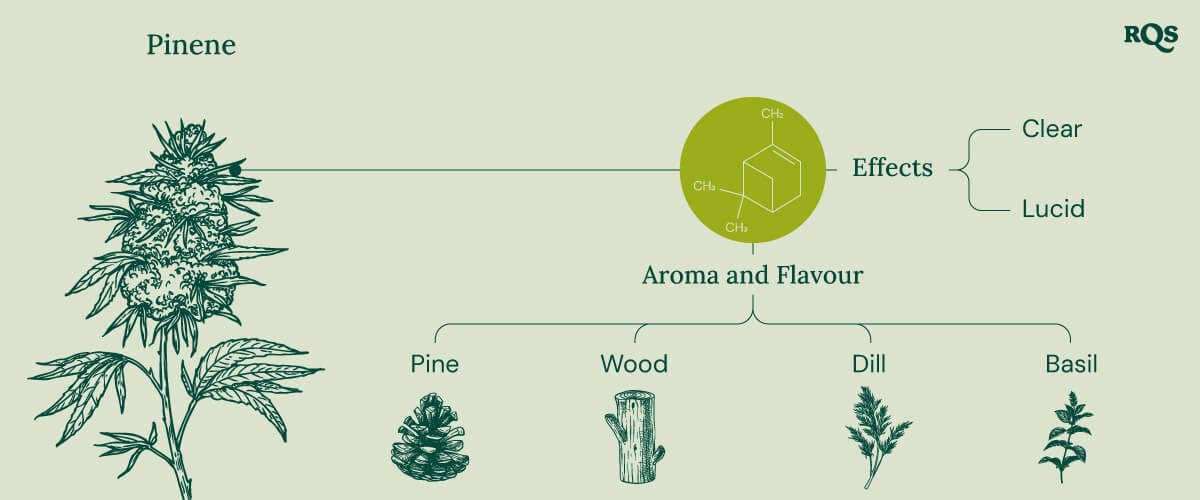
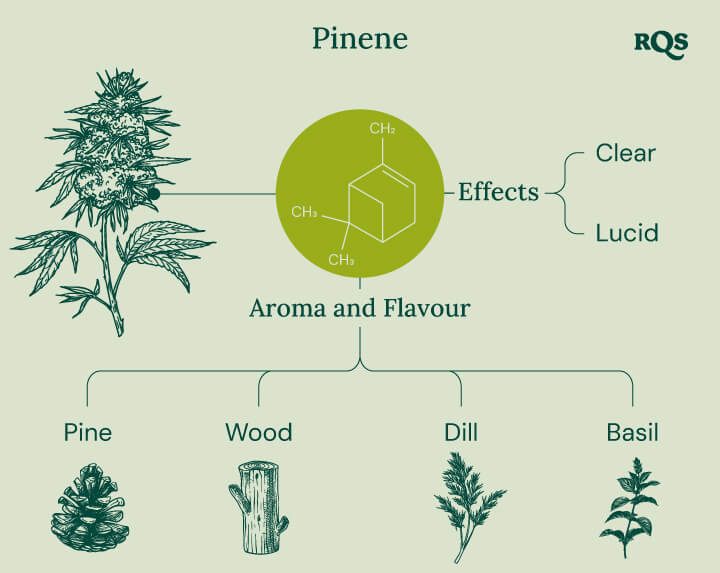
Pinene: A Look at the Research
Scientists have made great strides when it comes to studying the cannabis plant and its components. Yet, despite such advances, barriers to research have kept us from determining the scope of how terpenes such as pinene work in the human body. However, a collection of cell and animal studies provide clues into what future findings could uncover. But remember, it’s important to note that these studies don’t necessarily represent how pinene works in humans. Check out some of the most interesting investigations below.
-
Pinene & Inflammation
Inflammation plays a fundamental role in many of the chronic diseases of the modern era. Scientists are keen to find ways to combat this physiological state, and some have turned their attention to pinene. Describing pinene as a potential terpene for brain health, researchers at the University of Wollongong, Australia, found the terpene to suppress pro-inflammatory markers[3] in mice.
-
Pinene & Cognition
In his paper[4] titled “Cannabis Pharmacology: The Usual Suspects and a Few Promising Leads”, cannabis scientist Ethan Russo discusses the potential benefits of alpha-pinene on memory and cognition. Russo posits that a-pinene's ability to inhibit the enzyme acetylcholinesterase allows it to reduce or eliminate short-term memory impairment—a hallmark side effect of smoking high-THC strains.
-
Pinene & Neuroprotection
The effects of the alpha-pinene terpene also span into the domain of neuroprotection. Scientists have tested the molecule in various animal models of neurological illnesses. These findings[5] show that pinene has the potential to improve behavioural neurological scores mediated through anti-inflammatory and antioxidant pathways.
-
Pinene & Microbes
Not all microbes are bad. We rely on a plethora of beneficial bacteria for optimal health. However, other forms of bacteria, fungi, and viruses can cause troublesome infections. Researchers from the Department of Environment and Forest Resources, Korea wrote an extensive review on the antimicrobial properties of pinene. The paper provides evidence of its antifungal and antibacterial activity on pathogens including Candida and Helicobacter pylori.
While antibiotics are enough to conquer many bacterial infections, antibiotic resistance poses a major threat to the global population. To fight back, researchers are turning to natural compounds in an effort to control antibiotic resistance. A study published in the journal PLOS ONE applied alpha-pinene to a form of Campylobacter and found that the terpene managed to modulate antibiotic resistance in several ways, including by damaging cell membranes.
-
Pinene & Epilepsy
Based on animal models, pinene also shows potential in the realm of epilepsy. A research team at the Shahid Bahonar University of Kerman administered Ducrosia anethifolia essential oil, which contains alpha-pinene as its principal component, to rats. They found the terpene to exhibit both anticonvulsant and antioxidant effects against induced seizures.
-
Pinene & Diabetes
Research suggests that pinene could mimic some of the effects of insulin, a sugar-storing hormone used to prevent diabetes complications. A 2024 study[6] published in the International Journal of Molecular Science suggests that the terpene emulates insulin’s effects by influencing the expression of the glucose transporter-4 (GLUT4), thereby affecting glucose uptake in skeletal muscles.
Similarly, another 2024 study[7] published in the Iranian Journal of Basic Medical Sciences pitted alpha-pinene against a cell model of hyperglycemia—a metabolic condition tied to diabetes that results in oxidative stress and inflammation. The researchers found that alpha-pinene exhibited protective effects against high-glucose conditions.
-
Pinene & Neuropathic Pain
Around 8% of the population in Europe is believed to live with neuropathic pain, with some estimates putting the figure at 20%[8]. Several different drugs are currently prescribed to deal with the condition to treat symptoms of shooting, burning, and stabbing sensations. Now, some scientists are turning their attention to pinene as a potential solution. A 2024 study[9] published in the journal Pain tested various cannabis terpenes, including beta-pinene, against a mouse model of chronic neuropathic pain. They concluded that cannabis terpenes are potential therapeutics against neuropathic pain and could work by targeting the adenosine A2A receptor site.
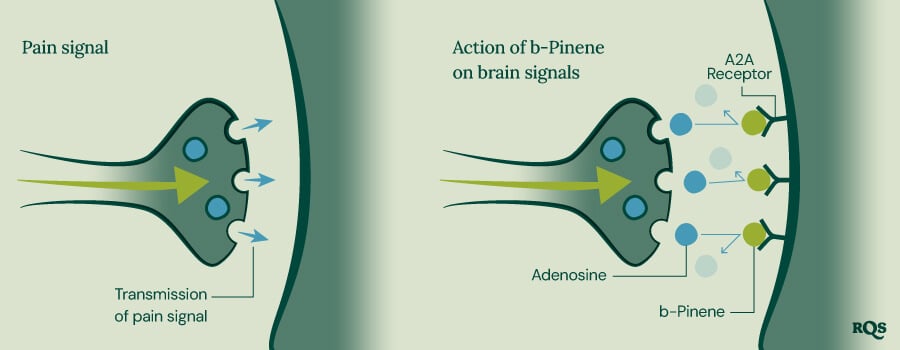
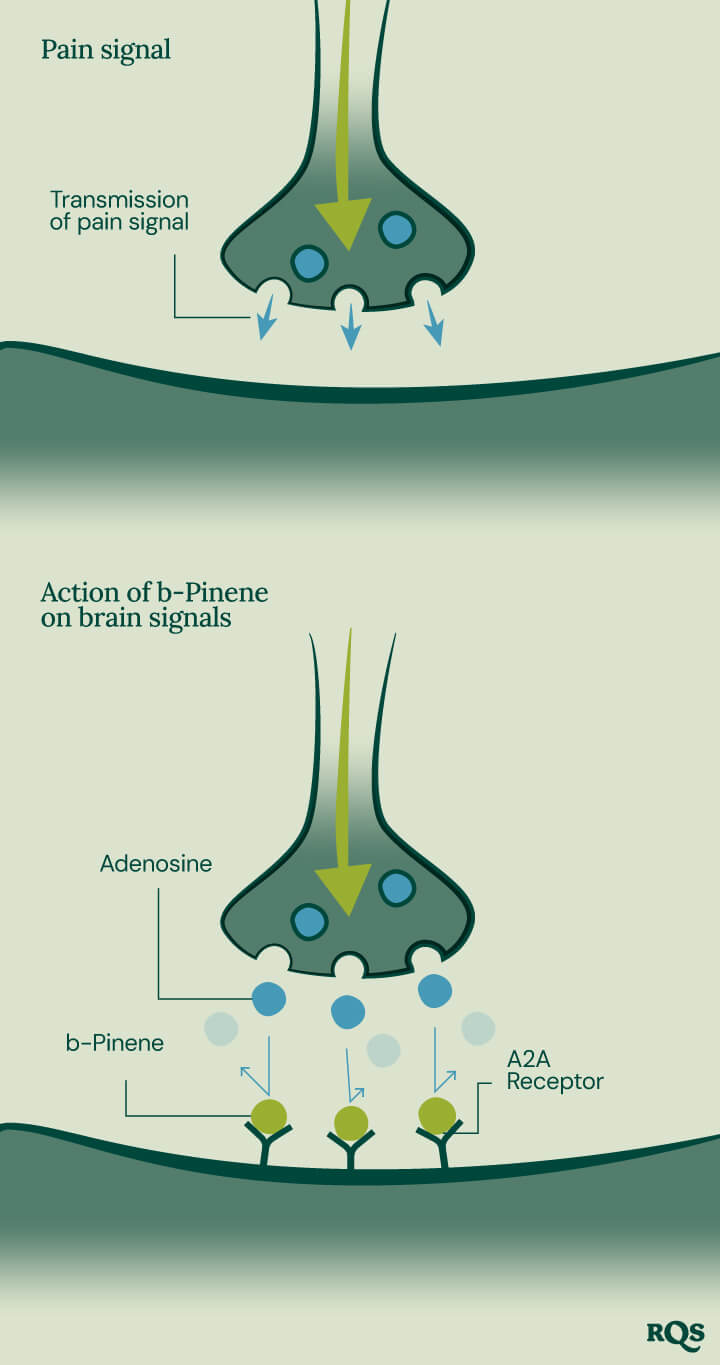
-
Pinene & Tumours
Under normal biological circumstances, cells undergo controlled programmed cell death when diseased, old, or damaged. Also known as apoptosis, this process contributes to the overall health of an organism. In the case of cancer, however, disease cells become resistant to apoptosis, allowing them to multiply uncontrollably. Early cell studies show that alpha-pinene successfully induces apoptosis[10] in human ovarian cancer cells.
More recently, a 2024 study[11] published in the journal Cancer Science investigated the effects of alpha-pinene on T-cell tumours. The research team administered the terpenes to different T-cell tumour cell lines and found that it managed to inhibit malignancy in certain cases by triggering apoptosis.
Alpha-pinene also exhibits antitumour effects in mouse models. Researchers from the Shizuoka Cancer Center in Japan exposed mice to a fragrant environment infused with the terpene. Incredibly, this simple intervention, which in some ways mimics the effects of forest bathing, reduced tumour sizes by around 40%. The team looked at biological markers that changed under these conditions and found increases in immune system components, including B cells.
-
Pinene & Oxidative Stress
Oxidative stress plays a significant role in the development and progression of many chronic diseases by causing cellular damage and dysfunction. A 2024 study tested the effects of alpha-pinene in a ketamine-induced model of schizophrenia in mice. By mitigating oxidative damage, cognitive deficits, and depression and anxiety behaviours, the terpene demonstrated neuroprotective properties, particularly against oxidative stress.
-
Pinene & Depression/Anxiety
Pinene’s benefits could also one day span into the domain of mental health. Several rodent studies[13] show that both a-pinene and b-pinene demonstrate antidepressant and anti-anxiety behaviours. The possible underlying mechanisms may involve dopamine, serotonin, and adrenaline receptors.
Pinene: A Fresh Cannabis Terpene With Unique Potential
Looking at the available research, the potential of alpha-pinene and beta-pinene seems impressive. However, at this time, the lack of clinical trials makes it impossible to draw any solid conclusions about pinene's effects on human health. With that said, advances in cannabis science make it clear that strains high in pinene offer a unique effect. While we wait for more research to emerge, try growing and sampling high-pinene strains and see how you get along!
- Effects of forest environment https://www.ncbi.nlm.nih.gov
- Cannabis sativa terpenes are cannabimimetic and selectively enhance cannabinoid activity https://www.nature.com
- Potential Use of Pinene and Linalool as Terpene-Based Medicines https://www.frontiersin.org
- Cannabis Pharmacology http://ethanrusso.org
- Potential Use of Pinene and Linalool as Terpene-Based Medicines for Brain Health https://www.frontiersin.org
- α-Pinene, a Main Component of Pinus Essential Oils https://pubmed.ncbi.nlm.nih.gov
- The protective effects of alpha-pinene on high glucose-induced oxidative stress and inflammation in HepG2 cells - PubMed https://pubmed.ncbi.nlm.nih.gov
- A burden of illness study for neuropathic pain in Europe - PMC https://www.ncbi.nlm.nih.gov
- https://pubmed.ncbi.nlm.nih.gov
- α-Pinene Induces Apoptotic Cell Death via Caspase Activation in Human Ovarian Cancer Cells https://www.ncbi.nlm.nih.gov
- Antitumor activity of α-pinene in T-cell tumors https://pubmed.ncbi.nlm.nih.gov
- Neuroprotective effects of alpha-pinene against behavioral deficits https://pubmed.ncbi.nlm.nih.gov
- A Review of the Potential Use of Pinene and Linalool https://www.frontiersin.org


























